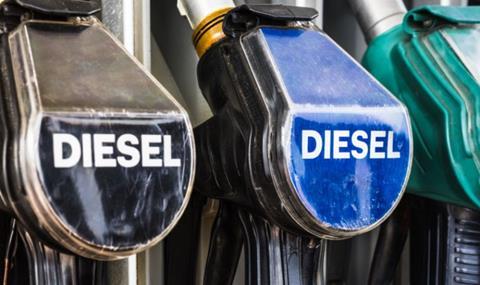
The majority of operators are not yet planning to invest in alternatively-fuelled vehicles, with cost and lack of government support prominent barriers, according to a new survey.
Asset Alliance Group found 80% of those surveyed were planning to stick with diesel for the time being, with many also concerned at the current lack of refuelling infrastructure in this country.
More than half (52%) said they would be more inclined to try alternative fuels if the government had a financial incentive, such as reduced tax or a scrappage scheme and 41% were put off by initial up-front costs associated with new technology.
For those willing to make the leap, 8% were looking at LNG fuel and 6% considering CNG.
A further 9% planned to plug into battery electric vehicle technology, while 6% have explored range-extended electric options.
Hydrotreated vegetable oil and gas to liquid fuels, as well as hydrogen, caught the eye of 2% of operators.
“Uncertainty regarding residual values also remains a blocker for a quarter of those we surveyed, while extended trial periods for testing new technology on the job was selected by 18%,” said the Asset Alliance Group report.
Read more
- Range anxiety a drag factor on fleets switching to electric vehicles, BP survey reveals
- One-fifth of operators to try alternative fuels within three years, new research reveals
- Nikola CEO slams truck manufacturers for avoiding switch to alternative fuels
“Operators would also be keen to see non-financial incentives being explored for new technology.
“For example, this could be in the form of dedicated kerbside space for zero-emission vehicles, or maybe an exemption from night-time delivery restrictions if using near-silent electric delivery trucks.”
Meanwhile, business group Logistics UK said the government should freeze fuel duty “forever” to help hauliers make the move to alternatively-fuelled vehicles.
Its chief executive David Wells said the sector was committed to switching to cleaner fuels, but the costs involved made it challenging for many, particularly when you take into account the narrow margins operators trade within.
“Our industry is fully behind the switch to alternative fuels but, in order to do so, needs a confirmation from the government that fuel duty will not be used as a tool to close budgetary gaps in the economy,” he said.
“This will help our member businesses to allocate more funds to the vehicle replacement cycle, secure in the knowledge that they will not be surprised by unexpected duty hikes in the coming months or years.”
Wells added: “With margins pared down to a minimum, and inflationary pressure set to bite over the autumn, a guaranteed, permanent freeze on fuel duty would allow our members to recover from the impact of the pandemic and start to focus on how best to make the switch to alternative fuels on the road to net zero.”













